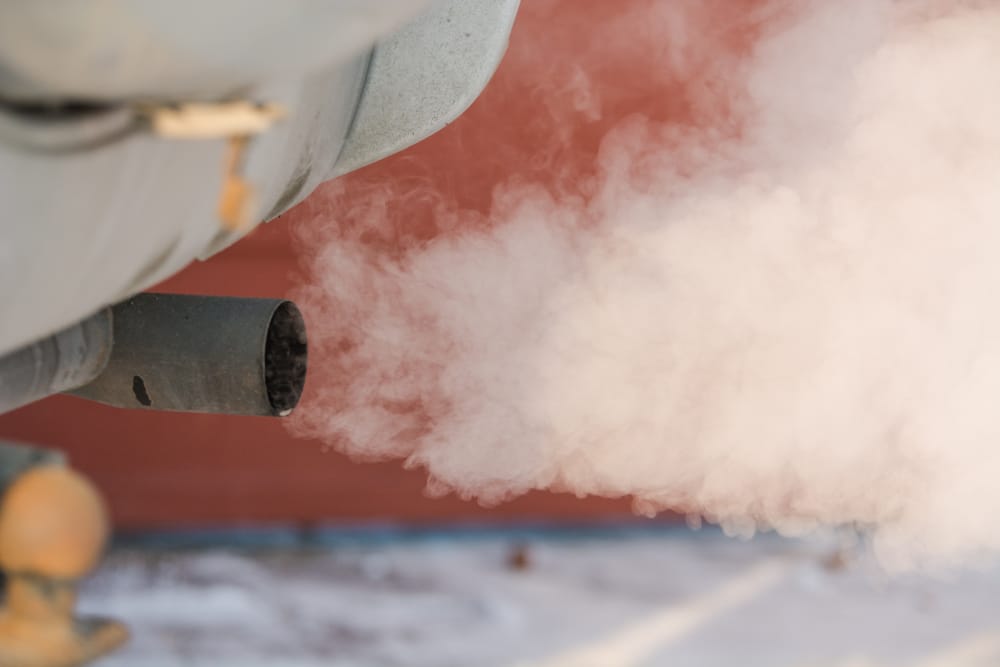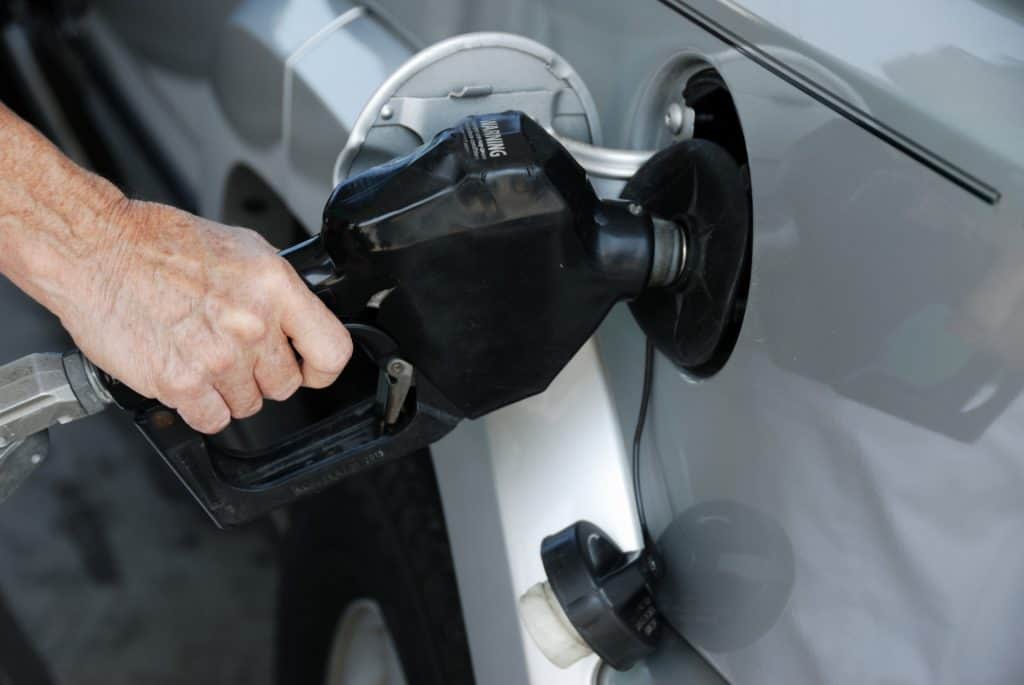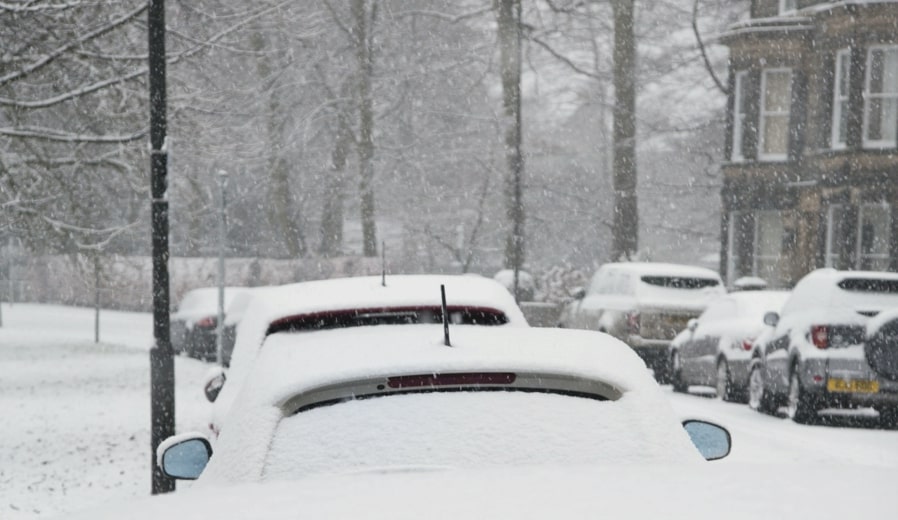
Have you ever wondered if your car’s fuel could turn into a giant ice cube during those bone-chilling winter months?
Well, buckle up and let’s take a frosty ride through the world of gasoline freezing.
Most gasoline begins to freeze at temperatures between -40°F and -200°F (-40°C to -129°C), with the average freezing point around -100°F (-73°C).
Unless you’re driving in the Arctic or on another planet, you’re probably safe from completely frozen fuel. But that doesn’t mean your car is immune to cold-weather fuel issues.
While your gas tank might not become a solid block of ice, extremely cold temperatures can cause components in the fuel to thicken or form ice crystals.
This can lead to all sorts of headaches, from clogged fuel lines to a sputtering engine.
So, before you park your ride in a snowbank for the night, let’s explore how to keep your fuel flowing freely, even when Jack Frost is nipping at your tailpipe.
Key Takeaways
- Gasoline typically freezes at extremely low temperatures, but cold weather can still affect fuel performance
- Keeping your gas tank full and using fuel additives can help prevent cold-weather fuel issues
- Regular maintenance and proper storage are crucial for protecting your vehicle’s fuel system in winter
Understanding Gasoline Freeze
Contrary to popular belief, gasoline can indeed freeze. The freezing point of gasoline is much lower than water, but it’s still possible under extreme conditions.
The Science of Gas Freezing

Gasoline is a mixture of hydrocarbons, each with its own freezing point. The freezing point of gasoline typically ranges from -40°F to -200°F (-40°C to -129°C). Most components freeze around -100°F (-73°C).
When temperatures plummet, gasoline doesn’t turn into a solid block like water. Instead, it becomes a gel-like substance.
This happens because different components in the fuel freeze at various temperatures.
You might wonder, “Will my car turn into a popsicle?”
Don’t worry, it’s unlikely unless you’re planning a road trip to Antarctica!
Factors Affecting Gasoline Freeze
The composition of your gasoline plays a significant role in its freezing point. Refineries often adjust the blend based on seasonal temperatures.
Winter-blend gas contains more butane, which lowers the freezing point. It’s like adding antifreeze to your coolant, but for your gas tank!
Moisture in your fuel tank can be a party pooper.
It can freeze at higher temperatures, potentially causing fuel line blockages. Keep your tank full to minimize condensation.
Fuel stabilizers can be your best friend in cold weather. They also help gas last longer so you don’t have to dispose of it.
They help prevent gas from freezing and keep your fuel system running smoothly. Think of them as a cozy blanket for your gasoline!
Consequences of Frozen Fuel

Frozen fuel can turn your winter driving experience into a real nightmare. Let’s take a look at how this icy situation can wreak havoc on your beloved ride.
Engine Damage Risks
When your car’s gas freezes, it’s like giving your engine a cold shoulder – and trust me, it doesn’t appreciate it one bit. Frozen gas can disrupt the combustion process, leaving your engine sputtering and gasping for power.
You might notice your car struggling to start or stalling out on the road.
But that’s just the tip of the iceberg.
Continued use of frozen fuel can lead to some serious long-term damage.
Your engine’s delicate components weren’t designed to handle ice crystals, and they’ll let you know it. You could be looking at:
- Damaged fuel injectors
- Cracked fuel pumps
- Worn out pistons and cylinders
Remember, repairing engine damage isn’t cheap. It’s like paying for a fancy dinner every time you fill up your tank – except you don’t even get to enjoy the meal!
Troubles With Frozen Fuel Lines
Now, let’s talk about those fuel lines. When gas freezes, it’s like your car’s arteries are getting clogged with ice.
Frozen car gas can cause fuel lines to become blocked, preventing your engine from getting its much-needed nourishment.
You might experience:
- Difficulty starting your car
- Poor acceleration
- Unexpected stalling
It’s like your car is on an unwanted diet, and it’s not happy about it.
Thawing out these frozen lines isn’t a walk in the park either. You might need to warm up your entire vehicle or even call for professional help.
In extreme cases, the expanding ice can even cause your fuel lines to crack or burst. Talk about adding insult to injury!
You’ll be left with a messy (and potentially dangerous) fuel leak to deal with on top of everything else.
Preventative Measures
Keeping your car’s fuel system winter-ready isn’t rocket science, but it does require a bit of know-how.
Let’s explore some tried-and-true methods to keep that gas flowing smoothly, even when Jack Frost comes knocking.
Fuel Additives and Their Roles
You’ve probably seen those little bottles of fuel additives at the auto parts store. Well, they’re not just for show!
A good fuel stabilizer can help prevent gas freezing and keep your engine purring like a kitten in cold weather.
These magic potions work by lowering the freezing point of gasoline and preventing moisture buildup in your fuel system. Think of them as tiny antifreeze agents for your gas tank.
Some additives also boost fuel efficiency, so you’re not just protecting your car – you’re saving a few bucks at the pump too. Win-win!
The Importance of Antifreeze
Now, let’s talk about antifreeze, your car’s winter superhero.
This stuff isn’t just for your radiator – it plays a crucial role in your entire fuel system.
Antifreeze, true to its name, prevents liquids from freezing in your engine. But it’s not just about keeping things from turning into ice cubes.
It also helps maintain optimal operating temperatures and prevents corrosion.
Make sure you’re using the right mix of antifreeze and water.
Too much water, and you might as well be pouring ice cubes into your engine. Too little, and you’re not getting the full benefit of this wonder fluid.
Remember, a well-maintained cooling system is your best defense against the winter blues. So don’t skimp on the antifreeze, folks!
Seasonal Tips for Fuel Care
Keeping your gas tank happy during the changing seasons isn’t rocket science, but it does require a bit of know-how.
Let’s dive into some practical advice that’ll keep your fuel system purring like a well-fed kitten.
Storing Gasoline in Winter
You know that old gas can sitting in your garage? It might be time to give it some TLC. Fuel can crystallize at extremely low temperatures, so proper storage is key.
Keep your gas cans in a cool, dry place away from direct sunlight.
Don’t forget to add a fuel stabilizer – it’s like a winter coat for your gasoline. This nifty additive prevents the fuel from breaking down and gumming up your engine.
Got a lawn mower or snowblower? Empty their tanks before tucking them away for the season.
Trust me, your future self will thank you when spring rolls around.
Professional Care and Advice
Sometimes, you’ve got to call in the big guns.
A professional mechanic can spot potential fuel system issues before they become wallet-draining nightmares.
Schedule a pre-winter checkup for your ride. They’ll inspect fuel lines, change filters, and make sure everything’s ship-shape for the cold months ahead.
Ask about winterizing your vehicle.
Some pros recommend keeping your gas tank full during winter to prevent moisture buildup. It’s like giving your car a nice, warm blanket of fuel.
A little professional advice can save you from turning your driveway into an impromptu auto shop in the dead of winter. Nobody wants that!
Special Considerations for Diesel
Diesel fuel behaves differently from gasoline in cold weather. You need to be aware of its unique properties to keep your diesel engine running smoothly when temperatures drop.
Diesel Freeze Point
Diesel doesn’t freeze like water, but it can gel up in cold temperatures.
This happens because of the paraffin wax naturally present in diesel fuel.
As temperatures drop, these wax particles start to crystallize. The point at which this occurs is called the cloud point. It’s like your diesel fuel is throwing a tiny ice party!
If it gets even colder, these wax crystals can clog your fuel filters.
This temperature is known as the Cold Filter Plugging Point (CFPP). It’s when your diesel decides to play a not-so-fun game of “clog the engine.”
The exact temperatures vary, but you might see issues anywhere from 20°F to -4°F (-6°C to -20°C). So, keep an eye on that thermometer!
Keeping Diesel Fluid During Winter
You’re not helpless against winter’s icy grip on your diesel. There are several ways to keep your fuel flowing freely:
- Use winter-blend diesel fuel
- Add anti-gel additives
- Keep your fuel tank full
- Park in a warm place when possible
Winter-blend diesel has a lower cloud point, giving you extra protection against gelling. It’s like giving your diesel a cozy winter coat.
Anti-gel additives can be your secret weapon.
They’re like tiny ice-breakers for your fuel, preventing those wax crystals from partying too hard.
Keeping your tank full reduces condensation, which can lead to water in your fuel. Water and diesel don’t mix well, especially in the cold!
And if you can, park your diesel vehicle in a garage or other sheltered spot. Your diesel will thank you for the warmer accommodations!
Frequently Asked Questions
Gas freezing is a common concern in cold climates. Let’s address some burning questions about this chilly topic with a mix of facts and fun.
How long does it take for gas to turn into a popsicle?
You’ll be waiting a long time for that gas popsicle! Gasoline freezes at around -40°F (-40°C). Unless you’re living in the Arctic, you probably won’t see your fuel solidify.
Do I need to knit a sweater for my natural gas lines come winter?
No need to break out the knitting needles!
Natural gas lines are typically buried deep enough to avoid freezing. Your gas company’s got this covered, so you can save that yarn for a cozy scarf instead.
At what point does gas start to get chilly in Celsius?
Gas doesn’t exactly “get chilly,” but it can start to gel at very low temperatures.
The freezing point of gasoline is about -40°C. That’s cold enough to make even a polar bear shiver!
Is my diesel dressing warmly enough to avoid the freeze?
Diesel’s a bit more sensitive to the cold than gasoline. It can start to gel at temperatures as high as 32°F (0°C).
You might want to consider some special fuel additives to keep your diesel cozy in winter.
Will gasoline play freeze tag in my plastic container?
Your plastic gas can isn’t likely to host a game of freeze tag.
Gasoline’s freezing point is so low that it’s more likely to evaporate than freeze in most climates. Just make sure to store it properly and you’ll be fine.
What’s the scoop—does gas throw in the towel when the temperature plummets?
Gas doesn’t exactly throw in the towel, but it can cause some cold-weather headaches.
In extremely low temperatures, gas can freeze in fuel lines, preventing your engine from starting. But don’t worry, this is rare in most places.
